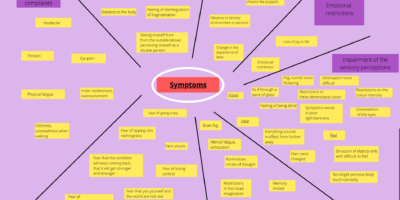Many people who repeatedly experience feelings of depersonalisation or derealisation wonder whether they are suffering from a mental illness.
ICD-10 F48.1
Depersonalisation and derealisation are actually included in ICD-10, the International Statistical Classification of Diseases. Here under the item F48.1.
There it says:
Depersonalisation-derealisation syndrome
Either 1 or 2:
- Depersonalisation: The affected person complains of a feeling of being distant, of being ‘not really here’. They complain, for example, that their sensations, feelings and inner sense of self are detached, alien, not their own, unpleasantly lost or that their feelings and movements seem to belong to someone else, or they have the feeling that they are acting in a play.
- Derealisation: Those affected complain of a feeling of unreality. They complain, for example, that the surroundings or certain objects look strange, distorted, dull, colourless, lifeless, monotonous and uninteresting, or they perceive the surroundings as a stage on which everyone is acting.
The realisation that the changes were not imposed from outside by other people or forces remains.
Subjective suffering is important
The definition according to ICD-10 makes it clear that phenomena of depersonalisation or derealisation can actually be an indication of a mental illness.
As with other mental illnesses, it is also necessary for those affected to feel impaired by the symptoms. This is usually the case when feelings of unreality or alienation occur repeatedly or persist over a longer period of time. There must therefore be a subjective state of suffering.

Schreibe eine Antwort